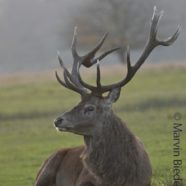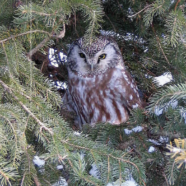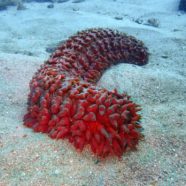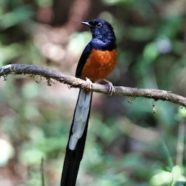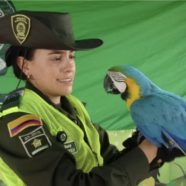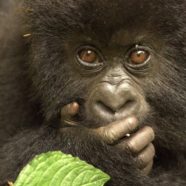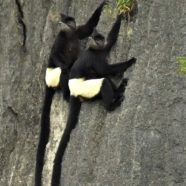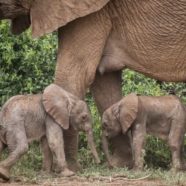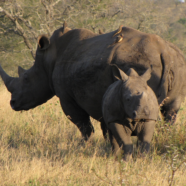“On the Trail” n°36, the defaunation bulletin
1,342 events with references, checked, analysed, commented and strengthened
between April 1 and June 30, 2022 407 iconographic documents. 8 maps and historical archives
(pdf, 238 pages – 7.5 Mo)
–
Robin des Bois’ incredible miscellany on poaching and smuggling is going on. “On the Trail” highlights black market trends, new weapons, modus operandi of raiders and smugglers, and rumours meant to attract consumers of wild animals and their by-products. “On the Trail” also pays tribute to the individuals, NGOs and institutions that are fighting wildlife crime. From beginning to end, the 36 issues of “On the Trail” are the biological, social, police, customs, legal and financial chronicle of the poaching pandemic and the anarchic and hypocritical exploitation of biodiversity.
“On the Trail” n°35, the defaunation bulletin
“On the Trail” n°35, the defaunation bulletin
1,420 events with references, checked, analysed, commented and strenghtened between January 1 and March 31, 2022
368 iconographic documents.
10 maps and historical archives
(pdf, 218 pages – 7.4 Mo)
The ups and downs of CITES
Press release CITES CoP19 n°4
Panama
Pineapple sea cucumber (Thelenota ananas), giant sea cucumber (T. anax) and red-lined sea cucumber (T. rubralineata)
The proposal by the European Union, the Seychelles and the United States to list the 3 species of the genus Thelenota in Appendix II was accepted by 97 votes in favour with 16 against and 15 abstentions. The listing will come into force after 18 months. France, which initiated the proposal, stressed the key role of sea cucumbers in ecosystems. In the seabed, sea cucumbers have a role comparable to that of earthworms.
Panama, the great sellout of wild animals and plants
Press release CITES CoP19 n°1
The 19th Conference of the Parties of the Convention on International Trade in Endangered Species of Wild Fauna and Flora (CITES) open today, Monday, November 14, in Panama City, the capital city of Panama, and will end on Friday, November 25. The global legal wildlife trade is worth an annual minimum 100 billion dollars. Trafficking fuelled by poaching and smuggling brings in between 7 billion and 23 billion US$ each year to international mafias.
“On the Trail” n°34, the defaunation bulletin
“On the Trail” n°34, the defaunation bulletin (pdf, 271 pages – 9.5 Mo)
1,854 events with references, analysed between September 1 and December 31, 2021.
506 iconographic documents.
Twelve maps and historical archives.
In 19 days, the 19th plenary meeting of CITES (Convention on International Trade in Endangered Species of Wild Fauna and Flora) will take place in Panama City with the participation of Robin des Bois, the Franz Weber Foundation and the Brigitte Bardot Foundation which support “On the Trail”.
“On the Trail” n°33, the gorilla settles his scores
“On the Trail” n°33,
the defaunation bulletin
(pdf, 287 pages – 10.6 Mo)
On the Trail n°32 – the defaunation bulletin
On the Trail n°32 – January, February, March and April, 2021
pdf, 306 pages – 24 Mo
We leave no endangered wild animal by the wayside.
Our team of profilers has been scrutinising photos of the cruelties, the attacks on the diversity, beauty and musicality of the Earth. From goldfinches to tigers, animals go through torture and then receive the posthumous glory of being sold online or in markets, or they end up imprisoned for life.
We also identified, compiled and analysed newspaper articles, social media posts and videos, customs and police news releases on poaching at sea, in trees and swamps, and on smuggling at sea ports, air terminals, bus and railways stations.
So, we went around the world in 120 days – from January to April 2021 – and discovered, in the containers and luggage compartments of big and small human affairs, thousands of sharks, peacocks and lions, with only fins, feathers and bones remaining.
On the border between Viet Nam and China, a truck was even spotted at night carrying big bags of pangolin scales and human hair. In the first 4 months of 2021, at least 11 tons of pangolin scales were seized, which corresponds to at least 30,000 specimens.
On the Trail n°31, the defaunation bulletin
On the Trail n°31 – October-November-December 2020
1,294 events with references, along with analyses, 469 iconographic documents, maps and historical archives.
222 pages (pdf – 12.2 Mo)
Winter 2020, curfews and lockdowns. Some are poaching for survival or for a bit of money, others by idleness. Zebra meat dries on ropes in the savannah. In the United States, 17-year-old teenagers are poaching deer with the spotlights of their parents’ GMC truck. There are traps everywhere and of all kinds from north to south, east to west, on land and at sea. No wildlife can escape them, from the biggest ones like bears to the smallest ones like Berthe’s mouse lemur. Birds by hundreds of thousands are captured to brighten up the stay-at-home holiday season. The Ganges river dolphins are lynched, people need to unwind.
The International of Elephant and Rhino Gravediggers sentenced
Rennes
The Criminal Court of Rennes (France) today imposed exemplary sentences on eight men of Irish, English, Chinese and Vietnamese origin guilty of trafficking in elephant ivory and rhino horn on French territory and, for some of them, of exporting it to Asia. Seven were found guilty of having committed these offences in conspiracy.





